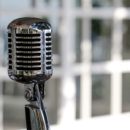Does Non-Avoidance = Exposure? No! Anxiety Disorder Treatment Principles for OCD, Panic, Social Anxiety, & Phobias.
Anxiety Principle of the Day: Non-Avoidance is not equivalent to exposure. Although exposure is predicated upon the purposeful non-avoidance of anxiety-related stimuli, non-avoidance of anxiety triggers is not equivalent to exposure. What is non-avoidance? I liken non-avoidance to being in a particular place at a particular time. Essentially, it involves being in a situation in which your anxiety is triggered by proximity to anxiety-related cues. Non-avoidance requires no action on your part aside from being physically present in the situation. As such, like a hole, it’s possible for a person to accidentally stumble into a non-avoidance exercise. Isn’t that the same thing as exposure? No. Exposure is not merely a situation, and as such, it can’t be entered into by accident. Although exposure therapy has situational elements, it is a dynamic experience that has best practices, as well as...
Read MoreOCD Triggers in Daily Life? Don’t Ritualize. Be Strategic! 3 Tips for Fighting OCD.
Question: I know about ERP, and I understand that OCD symptoms can be reduced by resisting rituals and then habituating to the anxiety brought on by obsessive thoughts. However…what if an obsessional thought requires no ritual? Confused! Great question. I think that in all cases of obsessive-compulsive disorder (OCD), there is some type of ongoing ritual that maintains the obsessional thought. This is because OCD is caused by threat misappraisals that are perpetuated and negatively reinforced by compulsive behaviors. As long as your compulsive behaviors remain in place, you are prevented from having the type of corrective learning experiences that are necessary for you to recover from your OCD. The reason that ERP is so effective is because it allows you to build these types of corrective learning experiences into your daily life. Sometimes a person has very obvious...
Read MoreExposure Therapy’s Most Common Mistake: All Eggs in the Habituation Basket
Many people have an incomplete understanding of exposure therapy… …be it exposure and response prevention (ERP) for OCD, intentional mistake practice for social anxiety, or interoceptive exposures for panic disorder… This is true for exposure newbies, seasoned exposure veterans, and even some good CBT therapists. This limited understanding is based on the following flawed logic: Premise 1: Anxiety disorders involve fear. Premise 2: Fear is reduced through habituation. Premise 3: Habituation is accomplished via exposure. Conclusion: Habituation is the process by which individuals recover from anxiety disorders. Note: This conclusion is only partially correct. Exposure, when done right, is about much more than just habituation. It’s about learning to see the world in a new way and developing a different type of relationship with your symptoms. Exposure can help you challenge unhealthy, false beliefs about yourself and the world;...
Read MoreSensorimotor OCD & Social Anxiety Differential Diagnosis: “Obsessive Swallowing”
Reader Question: For the past year, I have been dealing with OCD-related sensorimotor obsessions focused on swallowing. My symptoms started during a class discussion in which I noticed myself swallow. Since then, whenever I am in a lecture or quiet place surrounded by people, I become deeply focused on my own swallowing and worry that others will notice my swallowing and then judge me. I am practicing meditation and daily exposures in which I sit down in a quiet room and intentionally invite the swallowing in. I also purposefully invite the swallowing in throughout the day, even when I am in the presence of friends. I try to be mindful of my swallowing without doing anything to avoid it or mask it. Even though my awareness of swallowing has not entirely gone away, the anxiety associated with it has...
Read MorePalm Beach (South Florida) OCD Support Groups: Adults, Kids, Teens
OCD Support Groups – Palm Beach Gardens|Jupiter|West Palm Beach|Florida Attention all South Florida residents with OCD in Palm Beach Gardens, Jupiter, Juno, West Palm Beach, Boca Raton, Boynton Beach, Lake Worth, Royal Palm Beach, Wellington, Delray Beach, Pompano Beach, Fort Pierce, Port St. Lucie, Greenacres, Miami, and Fort Lauderdale. I am pleased to announce that the Center for Psychological & Behavioral Science is now sponsoring free monthly support groups for Palm Beach County kids, teens, and adults with OCD! The monthly OCD support group schedule is as follows: OCD Support Group for Kids & Teens (17 & younger) – Led by Dr. Seay Meets Monthly (specific times/dates vary based on attendee availability) Location – Our Office (address below). If you would like to help choose our next meeting date or get announcements about upcoming meeting times, you can access...
Read More







